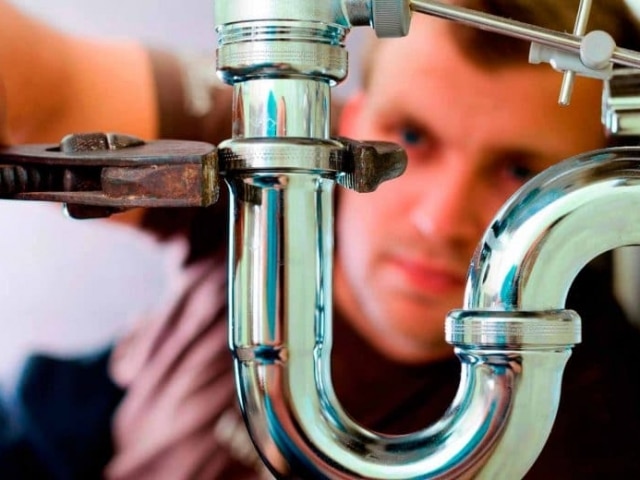Plumbing issues are an inevitable part of homeownership. A leaking faucet, a clogged drain, or a running toilet can quickly turn into a major headache if not addressed properly. While calling a plumber is always an option, many basic plumbing problems can be prevented or fixed with a little DIY knowledge. This guide will walk you through essential plumbing maintenance tips that every homeowner should know.
Why Plumbing Maintenance Matters
Proper plumbing maintenance can save you time, money, and frustration. Here are a few key benefits:
- Prevents Costly Repairs: Catching minor issues early can prevent them from escalating into expensive repairs.
- Extends the Lifespan of Fixtures: Regular maintenance helps keep plumbing fixtures in good working order for years.
- Improves Water Efficiency: Fixing leaks and optimizing water usage can lower your utility bills.
- Maintains Home Value: A well-maintained plumbing system is a crucial component of a well-kept home.
Essential Plumbing Tools Every Homeowner Should Have
Before diving into plumbing maintenance, it’s essential to have the right tools on hand. Here are some must-haves:
- Plunger (for toilets and sinks)
- Pipe wrench (for gripping and turning pipes)
- Adjustable wrench (for tightening and loosening nuts and bolts)
- Plumber’s tape (for sealing threaded pipe connections)
- Drain snake (for clearing clogs)
- Bucket and rags (for cleaning up spills)
- Plumbing putty (for sealing small leaks)
Common Plumbing Maintenance Tasks
1. Checking for Leaks
Leaks can lead to water waste and structural damage. Regularly inspect the following for leaks:
- Under sinks: Look for dampness or water stains.
- Toilets: Drop a few drops of food coloring into the tank; if the color seeps into the bowl within 30 minutes, you have a leak.
- Faucets and showerheads: A slow drip can waste gallons of water over time.
If you find a leak, tighten any loose connections or replace worn-out washers. For persistent leaks, plumber’s tape can help create a better seal.
2. Preventing Clogs
Clogged drains are one of the most common plumbing issues. Here’s how to prevent them:
- Use drain covers: These help catch hair, food scraps, and debris before they enter your pipes.
- Avoid pouring grease down the sink: It solidifies and causes blockages.
- Flush drains with hot water: Once a week, pour boiling water down your kitchen sink to dissolve grease and soap buildup.
- Use a baking soda and vinegar solution: Pour one cup of baking soda followed by one cup of vinegar into the drain, wait 10 minutes, and flush with hot water.
3. Maintaining Your Water Heater
Your water heater is essential for daily activities like showering and washing dishes. Keep it in good shape with these tips:
- Check the temperature: Set your water heater to 120°F to prevent scalding and save energy.
- Flush the tank annually: Sediment buildup reduces efficiency. Drain the tank once a year to remove debris.
- Inspect for leaks and rust: If you notice corrosion, it might be time for a replacement.

4. Taking Care of Your Toilets
A malfunctioning toilet can waste a lot of water. Keep it running smoothly by:
- Avoiding flushable wipes: Despite the label, they don’t break down easily and can clog pipes.
- Checking for running water: If your toilet runs constantly, replace the flapper or adjust the float.
- Using a plunger for minor clogs: For stubborn clogs, use a toilet auger instead.
5. Winterizing Your Plumbing
Cold weather can cause pipes to freeze and burst. Protect your plumbing with these steps:
- Insulate exposed pipes: Use foam pipe insulation, especially in basements and attics.
- Let faucets drip: On extremely cold nights, let faucets trickle to prevent freezing.
- Shut off outdoor water supply: Disconnect and drain garden hoses before winter.
When to Call a Professional Plumber
While many plumbing issues can be tackled on your own, some situations require professional help. Call a plumber if:
- You experience persistent leaks that DIY fixes don’t solve.
- Water pressure suddenly drops throughout the house.
- There are signs of major pipe damage, such as water stains on ceilings or walls.
- Your drains back up repeatedly despite attempts to clear them.
- Your water heater makes unusual noises or stops working efficiently.
If you ever face a situation where water is flooding your home, an emergency plumbing repair may be necessary to prevent severe water damage. Knowing when to act quickly and contact a professional can save you from extensive and costly repairs.
Final Thoughts
Basic plumbing maintenance doesn’t have to be overwhelming. With regular inspections, preventative measures, and the right tools, you can keep your home’s plumbing system in excellent condition. Taking the time to address minor issues before they escalate will save you money and stress in the long run. And when in doubt, don’t hesitate to call a professional to handle more complex plumbing problems.
By following these simple tips, you can ensure that your home’s plumbing remains reliable and efficient for years to come!

